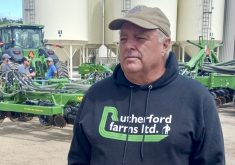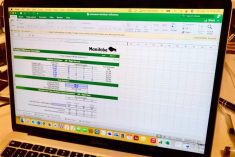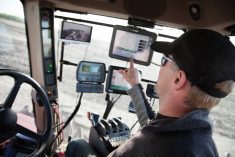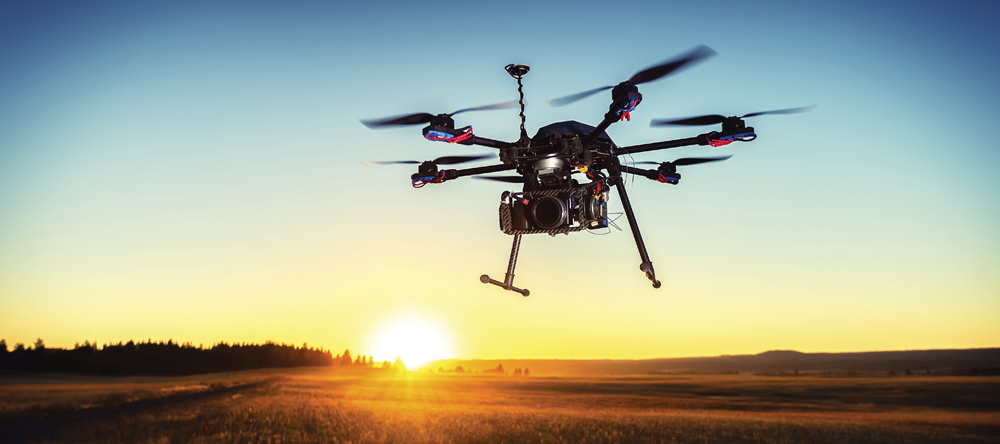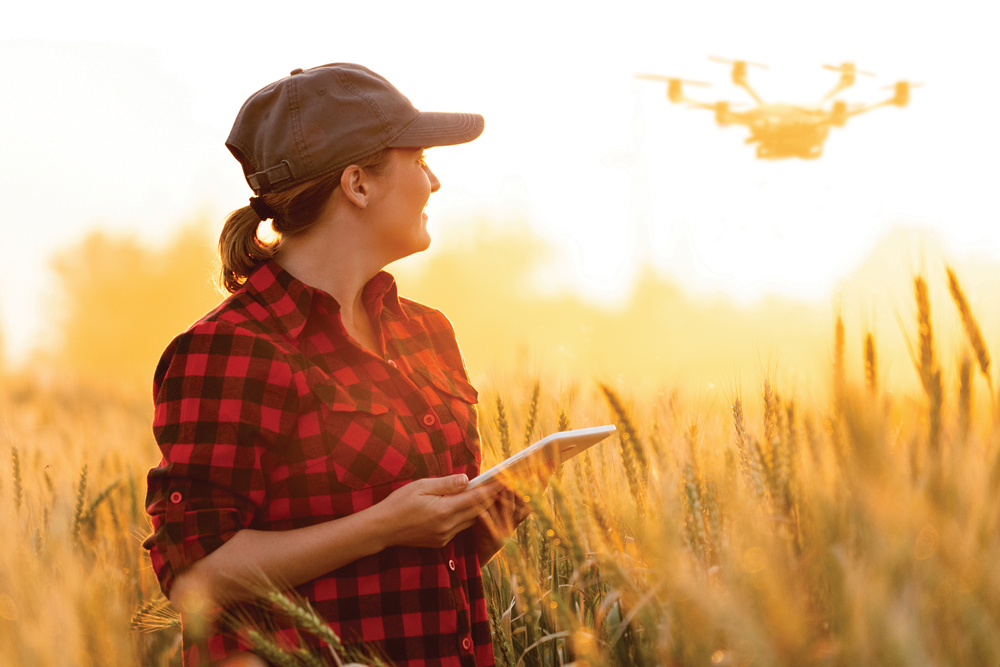Big data may seem like a lofty topic for the average farmer, but many are already using it to improve productivity without even realizing it, the co-founder of one of the fastest-growing precision agriculture services on the continent says.
“They’re doing it in the coffee shops,” said Wade Barnes, CEO and co-founder of Farmers Edge, a company he co-founded with Curtis MacKinnon in a Pilot Mound, Man., basement 10 years ago.
But whereas the coffee shop data exchanges also come with a certain degree of bragging rights, Farmers Edge is aiming to make them bankable by capturing the farmer’s own field-centric data, analyzing it, and then helping the farmer build a recipe that cuts input costs, increase yields and boosts the bottom line.
Farmers Edge is continuing to expand in Canada and four other major agricultural countries — the United States, Australia, Brazil and Russia. It manages around four million acres now, but is shooting for 35 million by 2021.

“We’re just getting started,” Patrick Crampton, Farmers Edge’s, chief products officer, said in an interview with Barnes on the sidelines of the Agri-Innovation conference in Winnipeg Nov. 17.
“At the end of it, agriculture is just math, but you’ve got to have the right data feeding into the model or you’re not going to get the right answers.
“By using data science we can provide a farmer with a recommendation that has probabilities around it. You can’t guarantee the weather. You can take the history of the farm, the view of where the weather is, forecasts and apply these models. You can give them a scientific recommendation with risk associated to it so they can make an informed decision.”
Read Also
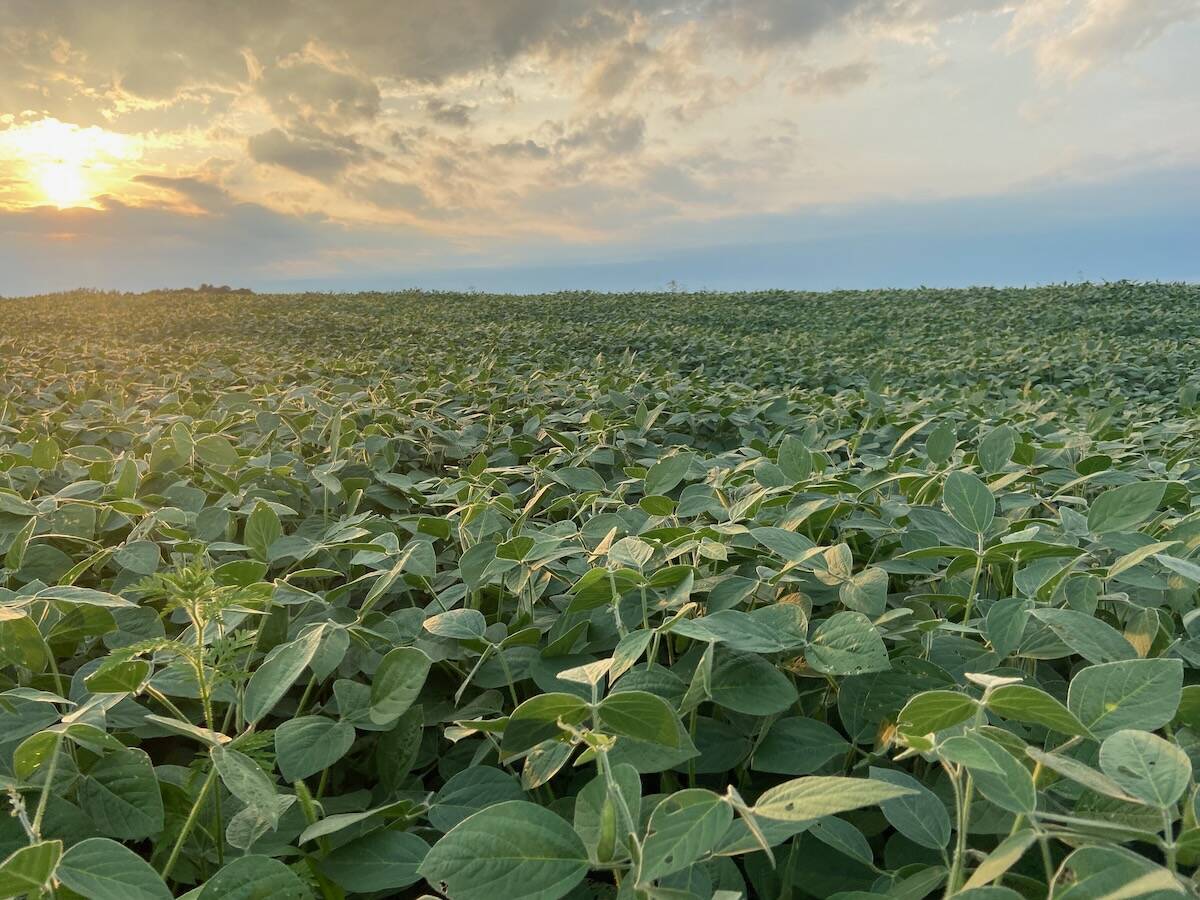
Weed resistance closes in on glufosinate
Expanded soybean acres and tighter application windows have eroded buffers that have so far protected Liberty herbicide on Prairie farms
Farmers used to increase productivity by planting the newest varieties, but yields have plateaued. New gains are coming through data science, Barnes said, and that’s why industry giants like Monsanto have entered the fray.
That was a wake-up call for Farmers Edge. Its roots were in variable-rate fertilizer, plus a la carte offerings. To better compete, Barnes revamped the firm’s business model focusing on adding value to farmers’ operations at an affordable price.
- More on the Manitoba Co-operator: Barnes responds to big data skeptic
Given all the risk in agriculture, when farmers buy an input they want the potential to triple their investment, Crampton said.
“We stripped away every part of our product offering that wasn’t scalable and didn’t meet the needs of farmers around the world and… distilled it into five precision solution offerings,” he told the Agri-Innovations conference. “We are selling the same offerings in Brazil as we are in Russia as we are in the U.S., Canada and Australia — because it fits every farmer.”
Farmers Edge has an integrated platform including software, hardware and support services. The core is called Smart Solutions, which includes a weather station for every 2,500 acres of land, soil sampling, remote imagery every six days during the growing season, CanPlug telematics, which the firm uses to collect data from every field operation then processes and analyzes it. That package costs $1.95 an acre. An extra $2 more an acre adds a variable-rate fertility program.
To get that price, the farmer must sign up all his or her entire acres for four years. The economies of scale keep costs down, Barnes said. Every year of data provides additional information that can make for improved recommendations and save money. For example, the first year the entire farm will be zone soil sampled, but then every other year after only a portion of the farm will be sampled with fertility recommendations based on a “virtual” soil sample, Crampton said. Farmers Edge will know how much fertilizer was applied, how much was removed and be able make an accurate fertilizer recommendation.
“That builds an integrated, proprietary data set for each of our customers’ farms,” Crampton said.
“We combine that with our team of agronomic researchers, our new product development group and our data science team to develop new products that deliver more value to our customers, which drives more acres and more data… and that’s what’s driving Farmers Edge’s business today.”
Monsanto is formidable competition, but Crampton said Farmers Edge has some competitive advantages having grown “from the ground up,” in Western Canada. Barnes and MacKinnon worked directly with farmers and know what they want: a good return on investment, a program that isn’t too time consuming or complex with support.
“We have the 20-minute rule,” Crampton said. “If you can’t fix that farmer’s problem in 20 minutes he’ll pull the card out of the monitor and he’ll flat rate (fertilizer) and do what he did last year because it worked. We’re trying to make them better, but it has to be easy and it has to have support to make it work.”
Farmers Edge is also accustomed to working with very little public data in Western Canada, unlike what’s available in the U.S. where Monsanto is starting up. Australia, Brazil and Russia are just as lacking in public data, Crampton said.
The company also has two important patents. One prohibits any other company from making fertilizer recommendations based on yield maps combined with remote sensing photographs, Barnes said. The patent, which expires in five years, was purchased from Mosaic.
The other, which is pending, allows Farmers Edge to calibrate other combine yield monitors from an already calibrated monitor, while still having each combine track the yield it collected separately.
“Yields from yield monitors are notoriously inaccurate,” Crampton said.
“We believe we have the most accurate yield maps in the industry.
“It’s part of having the right data.”
Farmers Edge has been hired by Dow Chemical to work on carbon offsets in Brazil for the Rio Olympics in 2016, Crampton said.
Last December Farmers Edge took a big step towards global expansion when Silicon Valley-based venture capital company Kleiner Perkins Caufield & Byers (KPCB) invested an undisclosed amount. The same firm has invested in such giants as Google, Amazon, Uber and Spotify. Former U.S. vice-president Al Gore is a partner in KPCB.
KPCB likes to invest in firms with market disruption potential, KPCB partner Brook Porter told the Winnipeg Free Press last year.
“(F)ood and agriculture is a multitrillion-dollar market where there’s plenty of acres to build a big company,”… and… “it (Farmers Edge) has the potential to be a billion-dollar-plus company.”




